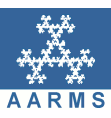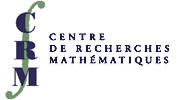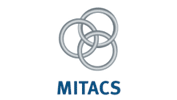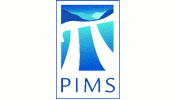 |
|
||||
Org: John Grant McLoughlin (UNB), Eric Robert (Leo Hayes HS), Alyssa Sankey (UNB) et Maureen Tingley (UNB)
[PDF]
- MARITZA BRANKER, Niagara University, Lewiston, NY 14109
Exposing Society's Reliance on Mathematics: A crucial task [PDF] -
The average math undergraduate student is never exposed to late 20th century mathematics. There is a consensus in the larger mathematical community that it is vital for students to see mathematics as an ongoing dynamic enterprise with significant impact on society. While undergraduates lack the technical sophistication to delve deeply, it is a disservice to them to avoid giving them a broad worldview of mathematics as a discipline. This talk will outline the development of a capstone course for preservice teachers and math majors which attempts to fill this gap in the curriculum.
- MALGORZATA DUBIEL, Simon Fraser University, Department of Mathematics, 8888 University Drive, Burnaby, BC V5A 1S6
SFU Experiments with LON-CAPA Homework Submission Systems [PDF] -
Online homework submission systems have many advantages, for example: instant feedback to students, less (or no) work devoted to marking. But do they help students to learn?
At SFU, we have looked at a number of systems. We have come to the conclusion that neither the systems offered by textbook publishers nor those produced by Maplesoft give the students a meaningful enough experience, and there are significant costs attached to each. As an alternative we have begun using LON-CAPA, a freeware system which allows for full control of the content. One of its best features is the discussion board and how easy it is for the students to engage in discussions while working on the problems. We monitor the discussions, posting hints or corrections if needed, and make sure that the students do not just use them to share their solutions.
We introduced LON-CAPA homework first for MATH 157 (Business Calculus), then in our main calculus stream (MATH 151 and 152), and in MATH 190 (Math for Elementary Teachers), MATH 100 (Precalculus), and FAN X99 (Foundations of Academic Numeracy). We also used LON-CAPA to create a calculus-readiness test.
- DISCUSSION, FACILITATOR: JENNIFER HYNDMAN
-
- MARK MAC LEAN, University of British Columbia, Vancouver, BC
Science One: University of British Columbia's Interdisciplinary First-Year Science Program [PDF] -
Mathematics plays an important role in interdisciplinary research, and there is a growing need for scientists who can work effectively on quantitative interdisciplinary projects. Starting in 1991, the University of British Columbia Vancouver (UBCV) Faculty of Science has developed an interdisciplinary first-year program called Science One to train new scientists who will be able to tackle problems that require tools from more than one discipline. Mathematics has been a core part of this program. I will present some ideas on the pedagogic benefits and pitfalls of integrating mathematics and science teaching at the university level. As we assess this program, we consider the question: How might we measure the impact Science One has on its students? I will present a brief overview of the qualitative and quantitative evidence that Science One has had a positive impact on students, faculty, and the university more broadly.
- TINA RAPKE, University of Calgary, 2500 University Drive NW, Calgary, Alberta
Learning, Creating and Teaching Mathematics: Complimentary Processes [PDF] -
This presentation will share my story of learning analysis and efforts toward creating original mathematics in the graph theory. The two stories will be shared to illuminate the similarities and differences between the two experiences. Struggle, textbook usage, identity, community and other themes involved in the learning and teaching of mathematics will be discussed.
- KAREN RHEA, University of Michigan, Ann Arbor, Michigan, USA
Introductory Courses at a Large Research University [PDF] -
Large universities are often faced with stereotypes of how introductory courses are taught. Indeed, those courses are often taught in large lecture sections and/or taught by graduate students or adjunct lecturers. In this talk we will explore a uniform system for introductory courses (Precal and Cal I/II) at the University of Michigan that has shown recent success on the Calculus Concept Inventory-and a discussion of the elements that may lead to that success.
- AMI MAMOLO, PETER TAYLOR, Queen's University, Kingston, ON
An engineering calculus teaching project: unexpected outcomes [PDF] -
In a large first-year engineering calculus course we have been running a project focused on student independence, peer teaching, and a more conceptual approach to the material. Over the first few weeks we encountered a number of surprises in how the students reacted to this approach. We will summarize these results and indicate how our priorities have changed.
- DARYL TINGLEY, University of New Brunswick, Fredericton
UNB's Experiences with Online Homework [PDF] -
In fall 2009, The University of New Brunswick began using the "online homework system" MathXL by Pearson Education. I will briefly discuss how the system is being used for "Introductory Calculus for Science and Engineers" as well as relate the impressions of members of our department about online homework.
Not liking to have my courses run by publishing companies, I experimented with WebWork, an open source online homework package which I used for linear algebra. Online homework for linear algebra seems to be much slower to be adopted than for Calculus. Why is that?
I would like the session to be a discussion of the pros and cons of online homework. If you have experience with, or thoughts about, such systems, please share them with us.





